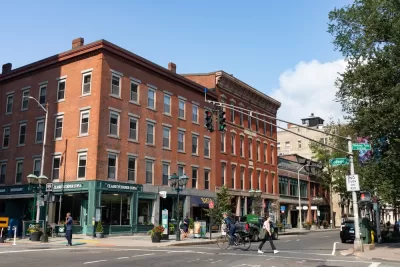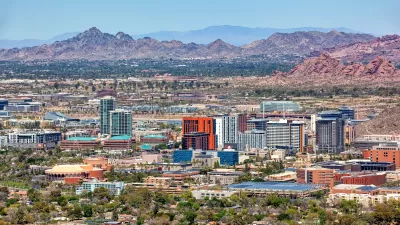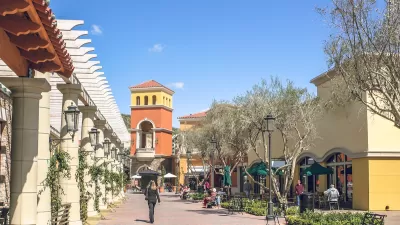Despite recent claims to the contrary, the concept of the 15-minute city promotes freedom of mobility and universal access to a city’s resources and amenities.

Proving the old adage that when all you have is a hammer everything looks like a nail, conspiracy theorists have descended on the 15-minute city concept as the latest target of alt-right paranoia. Having discovered the concept earlier this year, some conspiracists are claiming that 15-minute city policies will implement mandatory restrictions on movement and take away personal freedoms.
They won’t.
Writing in The Washington Post, Lara Williams describes how the theories took hold, starting with an uproar over an innocuous plan to improve pedestrian facilities and reduce the need for car trips proposed in Oxford, England.
Mix high levels of distrust in governments and institutions with pandemic lockdowns, an underlying conspiracy theory about a “new world order” and an urban planning concept backed by an international network of mayors, and garnish with a toxic car culture. Marinate on the internet, and voila! You now have a lot of people primed to believe that local councils are going to imprison them in 15-minute zones.
Sander van der Linden, author of Foolproof: Why We Fall for Misinformation and How to Build Immunity, suggests that the best way to prevent the spread of these theories is to preempt misinterpretations and train people to recognize manipulation techniques employed by promoters of conspiracy theories. To recap: the 15-minute city is a guiding principle toward reducing the need for car trips and improving public health and public spaces. “It’s really quite wholesome, rooted in making humans and the planet happier.”
FULL STORY: No, 15-Minute Cities Aren’t a Threat to Civil Liberties

Planetizen Federal Action Tracker
A weekly monitor of how Trump’s orders and actions are impacting planners and planning in America.

Congressman Proposes Bill to Rename DC Metro “Trump Train”
The Make Autorail Great Again Act would withhold federal funding to the system until the Washington Metropolitan Area Transit Authority (WMATA), rebrands as the Washington Metropolitan Authority for Greater Access (WMAGA).

The Simple Legislative Tool Transforming Vacant Downtowns
In California, Michigan and Georgia, an easy win is bringing dollars — and delight — back to city centers.

The States Losing Rural Delivery Rooms at an Alarming Pace
In some states, as few as 9% of rural hospitals still deliver babies. As a result, rising pre-term births, no adequate pre-term care and "harrowing" close calls are a growing reality.

The Small South Asian Republic Going all in on EVs
Thanks to one simple policy change less than five years ago, 65% of new cars in this Himalayan country are now electric.

DC Backpedals on Bike Lane Protection, Swaps Barriers for Paint
Citing aesthetic concerns, the city is removing the concrete barriers and flexposts that once separated Arizona Avenue cyclists from motor vehicles.
Urban Design for Planners 1: Software Tools
This six-course series explores essential urban design concepts using open source software and equips planners with the tools they need to participate fully in the urban design process.
Planning for Universal Design
Learn the tools for implementing Universal Design in planning regulations.
Smith Gee Studio
City of Charlotte
City of Camden Redevelopment Agency
City of Astoria
Transportation Research & Education Center (TREC) at Portland State University
US High Speed Rail Association
City of Camden Redevelopment Agency
Municipality of Princeton (NJ)





























